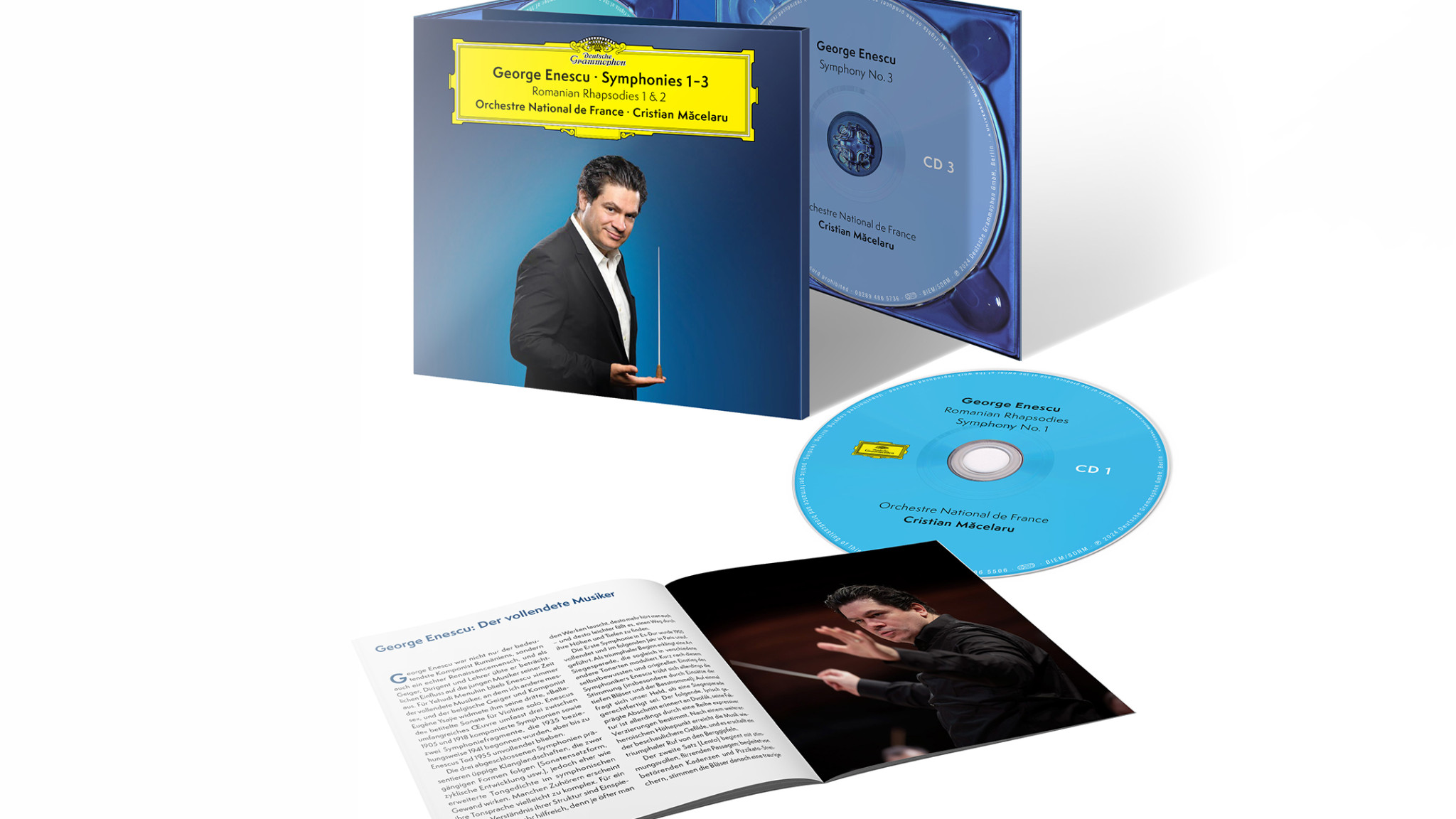Enescu: The Complete Symphonies

Celebrated as a national hero in his native Romania but often overlooked elsewhere since his death in 1955, George Enescu was not only a virtuoso violinist and pianist, but a prodigiously talented composer, conductor and teacher (Menuhin was among his pupils). As appreciation grows for Enescu’s music, Deutsche Grammophon is delighted to issue an album featuring the well-known pair of Romanian Rhapsodies and, making their first appearance in the Universal Music Group catalogue, the composer’s three completed symphonies. All five works are performed by the Orchestre National de France – this year celebrating its 90th anniversary – under its Grammy®-winning Music Director Cristian Măcelaru. Recorded in Paris, the album will be released digitally and as a 3‑CD set on 12 April 2024. The First Symphony’s Vif et vigoureux finale will be available to stream or download from 22 March.
Enescu moved to Paris in his early teens to study at the Conservatoire and divided the majority of his time thereafter between France and Romania. As noted by Cristian Măcelaru, both countries played a key role in his life as a musician. His birthplace gave him “the Romanian spirit found in the centuries-old melodies and rhythms to which [he] refers with such consistency and depth”, while his adopted home “was where he developed into a mature, sophisticated musician”. It is therefore particularly appropriate to hear his music performed by the Paris-based Orchestre National de France, conducted by the Romanian Măcelaru, who is also the newly appointed Artistic Director of the prestigious George Enescu International Festival, held in Romania since 1958.
Măcelaru, who regards Enescu as his “personal hero”, explains that the works on the album perfectly reflect the composer’s artistic development – “from the youthful brilliance of the Romanian Rhapsody No. 1 to the profound, ethereal, philosophical ending of the Third Symphony”. The two Rhapsodies date from 1901 and have remained in the repertoire ever since.
The early success of the First Rhapsody long overshadowed Enescu’s later orchestral works, establishing the notion that his music was purely folk-inspired and “exotic”. As his three symphonies show, however, his vision was nothing less than cosmopolitan, seamlessly weaving together everything he had learned from his studies first in Vienna and then in Paris with the Romanian folk traditions absorbed from his earliest days.
There are echoes of, among others, Dvořák and Richard Strauss in the First Symphony in E flat major (1905); Tchaikovsky, Delius and Strauss again in the Second in A major (1912–14); and Brahms and Debussy in the Third in C major (1916–18), complete with wordless chorus, sung here by the Chœur de Radio France. What shines through in all three of these rich and colourful performances, however, is the self-assured and truly original voice of a composer whose revival and full appreciation is long overdue.
